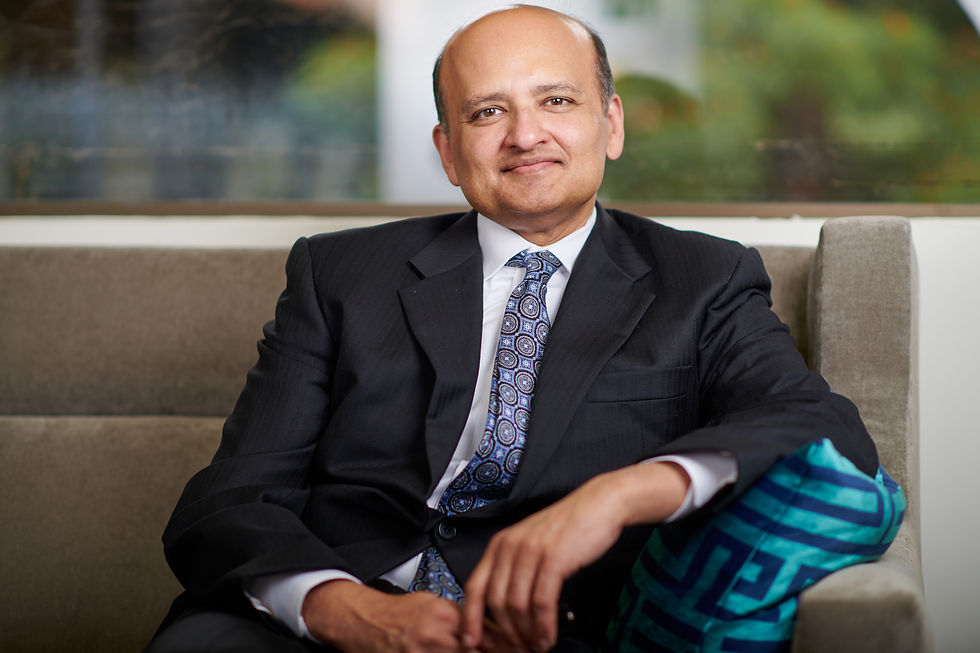The Promise of the Triple Negative Breast Cancer Vaccine
- Surviving Breast Cancer
- Aug 1, 2023
- 3 min read
Updated: Aug 7, 2023
By Laura Carfang
Edited by Meghan McCallum
Breast cancer is a devastating disease that affects millions of people worldwide. According to the American Cancer Society, breast cancer is the second most common cancer in women, with approximately 2.3 million new cases diagnosed each year. Despite advances in treatment options, the risk of recurrence and the potential for metastasis remain significant concerns for breast cancer survivors. However, there is new hope on the horizon in the form of a breast cancer vaccine.
A recent episode of the SurvivingBreastCancer.org podcast Breast Cancer Conversations, hosted by Laura Carfang, highlights the promising breakthrough of a breast cancer vaccine. The episode features Dr. Amit Kumar, the chairman and CEO of Anixa Biosciences, and Jennifer Davis, the first recipient of the triple negative breast cancer vaccine, which is currently in testing with Cleveland Clinic.

Dr. Kumar, a trained scientist with extensive experience in the biotech industry, explains that Anixa Biosciences partnered with Cleveland Clinic in 2019 to bring this groundbreaking vaccine technology out of the laboratory and into human testing. The vaccine is designed to prevent the recurrence of breast cancer in survivors and potentially even prevent the onset of cancer in individuals who have never had breast cancer before. While the vaccine’s initial target is triple negative breast cancer, Dr. Kumar believes that this technology has the potential to prevent other types of breast cancer as well.
Dr. Kumar emphasizes the significance of targeting triple negative breast cancer, which has not previously been achieved as it has for hormone receptor positive breast cancers. “If you have triple negative breast cancer, there’s really nothing out there in targeted therapy today. As a result, triple negative—which also happens to be the most lethal form of [breast] cancer and the most aggressive type of [breast] cancer that results in the most recurrences—really doesn’t have a lot of good therapies.”
He notes that while there are specific treatment options for triple negative breast cancer, the treatment process is extremely challenging for those undergoing it. The hope with the vaccine, then, is to eliminate the need for this brutal treatment altogether by preventing the cancer from developing in the first place.
Dr. Kumar collaborated with Cleveland Clinic to develop the vaccine. He met Dr. Vincent Tuohy, the immunologist at Cleveland Clinic who invented the technology behind the vaccine, and the two decided to commercialize and develop it for clinical use. Unfortunately, Dr. Tuohy passed away before seeing his vision come to fruition. The vaccine has since entered human testing and shows promise for the future. Dr. Kumar expresses deep gratitude for Dr. Tuohy’s work and the significant impacts it could have on the future of breast cancer prevention.

Jenni Davis, a registered nurse, was diagnosed with triple negative breast cancer at the age of 41. She underwent chemotherapy, radiation, and a double mastectomy. As a patient at Cleveland Clinic, Jenni learned about the vaccine in development after finishing her treatment. Once it was available through the trial, her healthcare team advised her that she could be a good candidate for it. “I was so happy about it,” she says.
Jenni was able to meet the trial criteria, and she received the first of three doses of the vaccine on October 19, 2021. The vaccine had been in research for over two decades at that point, Dr. Kumar notes, and Jenni was the first human to receive it.
“I’m so very thankful to Anixa and Cleveland Clinic for coming together and rolling out this vaccine,” Jenni says. She is excited about the possibilities it holds for the future of breast cancer treatment and prevention.
The vaccine is currently in early Phase 1 testing, and the initial data looks promising. If successful, this vaccine could be a game changer in the fight against breast cancer. It has the potential to significantly reduce the risk of recurrence and improve overall survival rates for those diagnosed with breast cancer. Additionally, it could offer hope to individuals who have never had breast cancer by providing a preventive measure against the disease.
The podcast episode underscores the importance of early detection and regular screenings for breast cancer. It also emphasizes the significance of research and innovation in finding new and effective treatments. The collaboration between Anixa Biosciences and Cleveland Clinic is a testament to the power of partnerships in advancing medical breakthroughs.
Listen to the episode:
More information:










